Before They Were Called: Dieter F. Uchtdorf
Dieter F. Uchtdorf serves as a member of the Quorum of the Twelve Apostles of The Church of Jesus Christ of Latter-Day Saints. We all know President Uchtdorf has a cool accent and really, really likes airplanes, but did you know the stories of his family’s escapes from danger, their conversion, and the small miracles in his life? In this biography of Dieter F. Uchtdorf, read about the ordinary and extraordinary stories from his early years.
Early trials
Escaping from Czechoslovakia
Dieter was born in Ostrava, Czechoslovakia, and grew up in war torn Europe. His father, Karl, was drafted into the German Army when Dieter was only four years old. This left Dieter’s mother, Hildegard, to raise and protect her four children in the midst of World War II.
Dieter remembers that his family lived in hunger, danger, and fear. One time, they were in a public auditorium when his mother received a strong impression to leave immediately. The Uchtdorf family had not yet heard of the Church or spiritual promptings, but Hildegard followed her impression and hurried her children away. Shortly thereafter, the auditorium was destroyed as an act of war, killing many of the people inside (“Dieter F. Uchtdorf”).
Finally, in the winter of 1944, Hildegard had had enough. Her parents lived closer to the Western Front in Germany, so she decided to risk the dangers of traveling and took her children on a train to this safer part of Europe.
At one stop, she got off the train to hunt for food. When she returned, she was horrified to find the train and her children gone. Hildegard looked and looked throughout the rail yard, fearing the train had already departed and she would never see her precious children again. But she had hope, and after much searching she found the train and her young family inside. They traveled on, making it to Germany safely (General Conference talk “The Infinite Power of Hope”).
Escaping from East Germany
After the war, Dieter’s father joined the rest of the family in Zwickau, Germany, where they would be converted to the Church. This city would become a part of East Germany and was subjected to communist rule. Dieter’s family lived there for seven years until they found themselves in danger once again because of Karl’s political position.
The family planned their second escape, this time to West Germany. They traveled separately to avoid suspicion: Karl went one way, Dieter’s two older brothers took a northern route, his sister traveled by train with two others girls, and 11 year old Dieter traveled with his mother.
All that Dieter and his mother carried with them were photographs and some food. They trekked and trekked for many hours. Hildegard struggled with weakening knees, and young Dieter had to help her up the last hill. When they were safe, they stopped to rest and eat.
Then to their horror, they saw some Russian guards and realized that they had not yet crossed the border as they had believed. They continued on, hoping they would not get caught. Finally, Dieter and his mother made it to West Germany safely and met with the rest of the family in Frankfurt.
The Uchtdorfs had abandoned all of their possessions for the second time in seven years, making them very poor. They lived in a one-room apartment infested with rats and could not even afford to attend church using public transportation. Though their situation was not ideal, they were blessed with freedom and safety. The Uchtdorfs stayed faithful to the gospel, taking turns attending church and always paying their tithing (Liahona article “President Dieter F. Uchtdorf: A Family Man, A Man of Faith, A Man Foreordained”).
Taking flight
Dreams of Flying
Dieter has always loved planes and flying. He remembers when he was four years old and watching enemy aircraft fly overhead as his mother rushed the family to air-raid shelters. Though he was frightened of the planes, he was also fascinated by them (Liahona article “President Dieter F. Uchtdorf: A Family Man, A Man of Faith, A Man Foreordained”).
When Dieter was 14, he would ride his bicycle to the Frankfurt Airport to look at the planes. If he was lucky, a pilot would let him sit in the cockpit. Day after day, Dieter watched the airplanes take flight and dreamed of doing the same.
Dieter would fulfill this dream by serving for six years in the German Air Force and training and flying with the American Air Force. At the young age of 29, he was promoted to the advanced position of Captain for Lufthansa, and would continue to rise to manager of the 737 fleet, director of an Arizona training school, chief pilot and head of cockpit crews, and senior vice president of flight operations (“Dieter F. Uchtdorf”).
Dieter expresses his love for flying, saying how he enjoys visiting the many people of the earth and viewing God’s creations from above. “I love to fly. The creation is really something that I love very much. At 35,000 feet, you are not that high, but you see how beautiful the earth is” (Church News article “Elder Uchtdorf views God’s creations from lofty heights”).
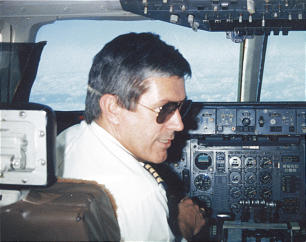
Steering Control Failure
In his earlier flying years, Dieter was completing a high level of training. He was flying solo with an instructor in a plane nearby giving instructions over the radio. Dieter had turned his plane down into a deep descent, performing a mock emergency landing, when the steering control became stuck. If he could not fix the malfunction, his plane would crash to the ground upside down.
His instructor called for him to “bail out,” but Dieter stayed, wrestling with the frozen steering control. “By listening to and following the Spirit,” Dieter was able to free the steering control and make a now very real emergency landing. He attributes the Lord for keeping him safe during this incident (Liahona article “Elder Dieter F. Uchtdorf: On to New Horizons” ; “Dieter F. Uchtdorf”).
Courtship and Marriage
First Meeting Harriet
Dieter first saw Harriet Reich at sacrament meeting when he was a deacon. The missionaries brought a new family to church one Sunday, a mother and her two beautiful daughters. “I thought that these missionaries were doing a very, very good job,” Dieter says, adding that he felt like he fell in love with Harriet from the moment he first saw her (General Conference talk “Your Happily Ever After”).
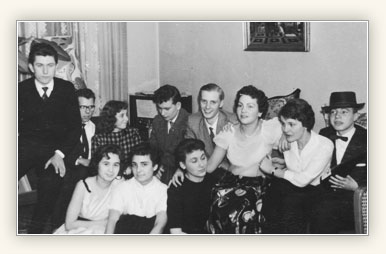
Harriet’s Conversion to the Church
Though Harriet was baptized when she was 13, she attributes an experience from much earlier in her life that brought her to the gospel. When she was 4 years old, an American serviceman gave her a piece of gum. She remembers the kind look on his face.
Several years later, the missionaries knocked on her door. Harriet’s father had passed away eight months earlier, and the family was still struggling with the loss. Harriet’s mother told her not to let the missionaries in, but Harriet noticed the kind expression on the young men’s faces. The look on their faces reminded her of the American serviceman from years before. Harriet then encouraged her mother to listen to the missionaries.
The truth of the gospel gave Harriet’s family joy and peace, helping them come to terms with her father’s death. A few weeks later, Harriet, her mother, and her sister were baptized (Liahona article “Elder Dieter F. Uchtdorf: On to New Horizons” ; Liahona article “President Dieter F. Uchtdorf: A Family Man, A Man of Faith, A Man Foreordained”).
Trying (and Failing) to Win Harriet’s Heart
Even though Dieter was head-over-heels for Harriet, she did not share his feelings. There were many other young men in the ward who were interested in her. Dieter tried his best to get Harriet to notice him. He always made sure that he was in the right spot to pass her the sacrament in church.
Whenever there was a church activity, Dieter would bike over to Harriet’s house to see if she needed a ride. However, more often than not, Harriet’s mother was the only one there. Sister Reich would tell Dieter that Harriet would be coming to the activity later, “but I will be happy to ride with you to church.”
So instead of spending time with Harriet, Dieter would pedal his bike with Sister Reich sitting on the handlebars while he tried to be “the most elegant bicycle driver over roads of rough cobblestone.” Though he was disappointed, Dieter F. Uchtdorf later said, “actually, looking back I recognize that it doesn’t hurt at all to be on good terms with the mother of the girl of your dreams” (General Conference talk “Your Happily Ever After”).
Courtship
Dieter left Germany to attend a fighter pilot training school in the United States. Harriet had many friends who had left to serve in the U.S. military and said that they came back acting like generals and “couldn’t even talk anymore in German.”
Dieter completed his training and returned to Frankfurt. Harriet saw him at a Mutual Improvement Association activity. When she noticed his uniform and short hair, she thought, “Oh, no!” fearing the worst. But when they spoke afterwards, she realized that he still spoke perfect German without a trace of an American accent.
Though she had a “handsome friend” with her, Dieter was not deterred (Church News article “Elder Uchtdorf views God’s creations from lofty heights”). He started to court Harriet, who one day told him, “Dieter, you have matured much over these past years.” They were soon married after that (General Conference talk “Your Happily Ever After”).
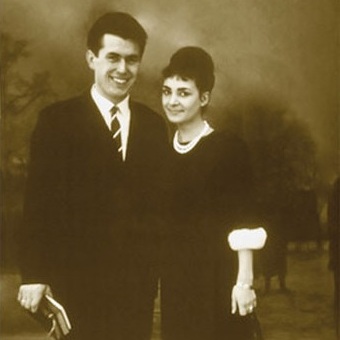
Language barrier
“English was definitely not my language”
When Dieter lived in East Germany, he was required to learn Russian in school. Though he struggled with the Cyrillic alphabet, he says that he did all right.
But when his family moved to West Germany, he was now required to learn English instead of Russian. He struggled with this language, saying that “to learn Russian had been difficult, but English was impossible for me. I thought my mouth was not made for speaking English . . . I knew English was definitely not my language.”
This all changed as his love for planes and dreams of flying grew. Dieter visited the air base often and learned all he could about being a pilot. Then he learned that pilots needed to speak English.
“Overnight, to the total surprise of everybody, it appeared as if my mouth had changed. I was able to learn English. It still took a lot of work, persistence, and patience, but I was able to learn English!” What had changed? He says that it was because he now had a motive to learn English, a motive to help him fulfill his dream (General Conference talk “The Power of a Personal Testimony”).
Flying, Teaching, and Building in Texas
Dieter had the opportunity to attend a fighter pilot training school in a small town called Big Springs in Texas. On his flight to the U.S., he sat next to a person with a heavy southern accent and wondered if he had learned the wrong language.
His fears of speaking and understanding English increased when the bishop of the branch called him to teach Sunday School:
I thought the bishop was crazy to call me, because how could I do this? But what a blessing it was. I could feel that the Lord was helping me. And that’s true for every circumstance I’ve experienced since then, that the Lord provides when we just follow Him.
Dieter would overcome the language barrier and find love and comfort with his branch as he spent time with the members working to build a meetinghouse. “There I learned that a two-by-four is not a dance step but a piece of wood. I also learned the important survival skill of missing my thumb when pounding a nail.”
While his fellow students spent their spare time doing activities that did not comply with the standards of the Church, Dieter spent his spare time helping to build the meetinghouse. Dieter F. Uchtdorf later said that this experience was his “sweetest memory” of his time in Texas. He would later rededicate the building in 2011 (General Conference talk “You Matter to Him” ; Church News article “Follow the Lord and He will provide” ; “Dieter F. Uchtdorf”).
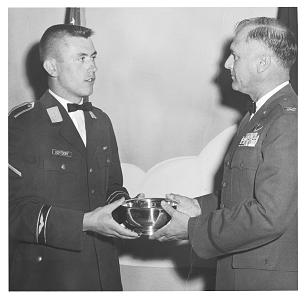
Spiritual Experiences
Conversion to the Church
The Uchtdorf family was converted to the Church after World War II while living in East Germany. Uchtdorf’s grandmother was standing in a food line when she met an elderly, single woman. This woman invited Uchtdorf’s grandmother and the rest of the family to sacrament meeting.
Soon, all of the Uchtdorfs were baptized, and after two years of waiting, Dieter was old enough to join the Church as well. The elderly sister’s name was Sister Ewig, which means “Sister Eternal” in German. Dieter F. Uchtdorf later said, “I will be eternally grateful for her love and example” (General Conference talk “The Opportunity to Testify”).
A Hidden Blessing
Dieter did not realize the significance of some of the experiences in his life until several years after they happened. When living in West Germany, his family started a laundry business to earn money. Young Dieter had the duty of delivering the laundry, pulling a cart full of clothing attached to “a heavy, ugly, black, sturdy workhorse of a bicycle.”
Dieter did not particularly enjoy this responsibility (or the ugly bicycle). The cart was often very heavy, making it difficult to pedal his bike around Frankfurt. But Dieter worked at this job for many years, because his family needed all the money they could get.
He did not realize the blessings of this duty until he was in the process of joining the German Air Force. There were some concerns over his medical test. The doctors told him of some scarring on his lungs, saying that he’d had a lung disease when he was younger, but was fine now. The doctors asked Dieter what treatment he had used.
This revelation surprised Dieter because he had not even known he’d had a lung disease. He realized that pedaling the heavy loads of laundry on his ugly bicycle had given him the exercise he needed to heal his lungs. Dieter would not have been able to join the Air Force if he had not done this (LDS Living article “General Authorities in the Military: In Their Own Words”).
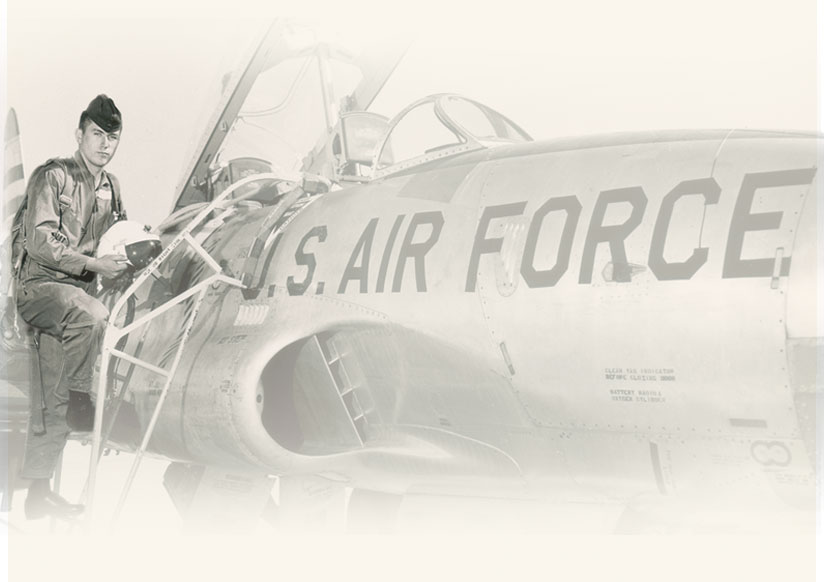
After He Was Called An Apostle
Dieter would serve as the president of the Frankfurt Germany Stake, president of the Mannheim Germany Stake, a member of the Second Quorum of the Seventy (“Dieter F. Uchtdorf”), and later as a member of the First Quorum of the Seventy (Liahona article “President Dieter F. Uchtdorf: A Family Man, A Man of Faith, A Man Foreordained”).
Dieter and Harriet would have two children, six grandchildren, and one great-grandchild. On October 2, 2004, Dieter F. Uchtdorf was called to be an apostle and on February 2, 2008, he was called as the Second Counselor of the First Presidency (“President Dieter F. Uchtdorf”).
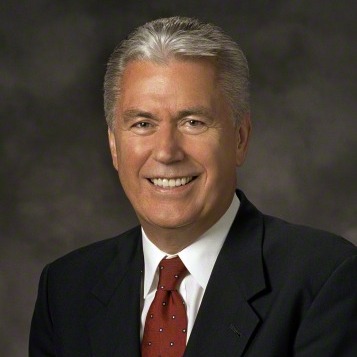
Despite the trials of his youth, Dieter has remained happy and strong. In the Liahona article, “Elder Dieter F. Uchtdorf: On to New Horizons,” his son, Guido, says that there is a German phrase his father often says:
“Man könnte sich darüber ärgern, aber man ist nicht verpflichtet dazu,” he would say, which roughly translated means, “You could be upset about it, but you are not obligated to be.”
Dieter has chosen to not let the hardships of his youth overcome him. He has lived and served in faith, love, and happiness.
To learn more about Dieter F. Uchtdorf, check out his Facebook Page or visit the links below.
- LDS.org article “Dieter F. Uchtdorf”
- LDS.org article “President Dieter F. Uchtdorf”
- Liahona article “President Dieter F. Uchtdorf: A Family Man, A Man of Faith, A Man Foreordained”
- Liahona article “Elder Dieter F. Uchtdorf: On to New Horizons”
- Church News article “Elder Uchtdorf views God’s creations from lofty heights”
- Church News article “Follow the Lord and He will provide”


